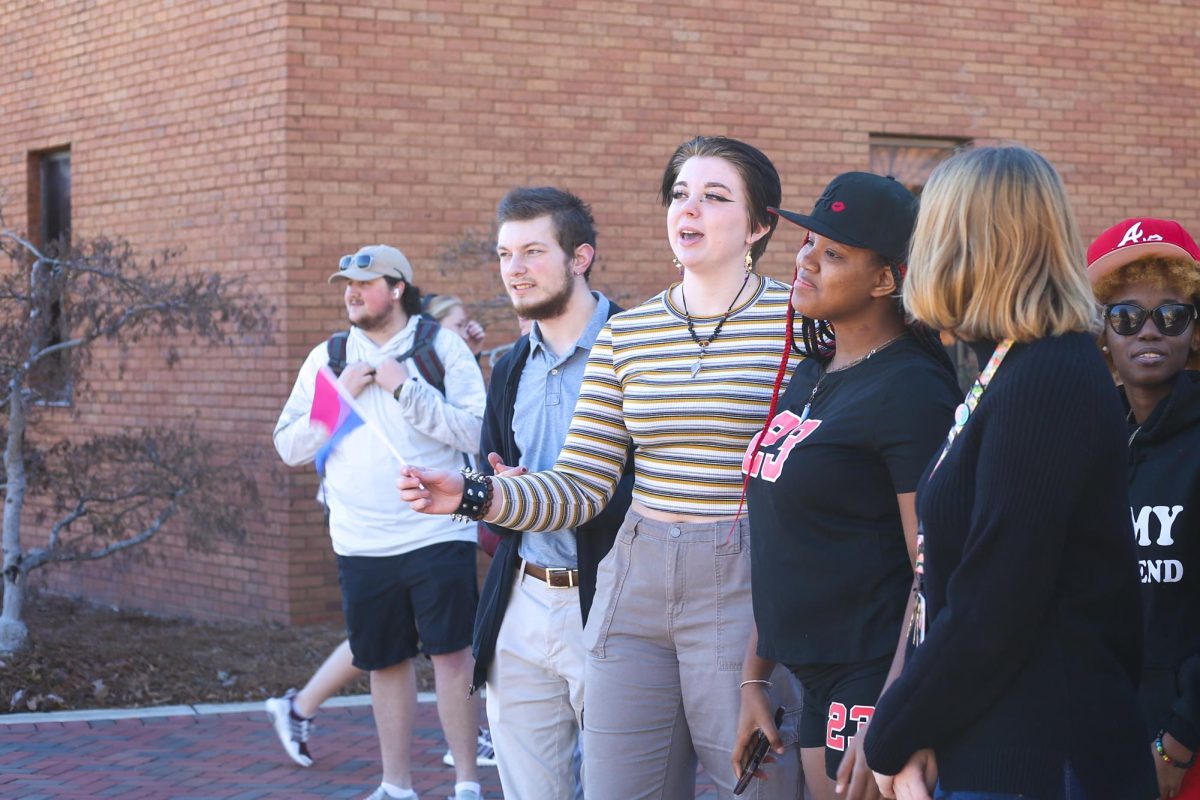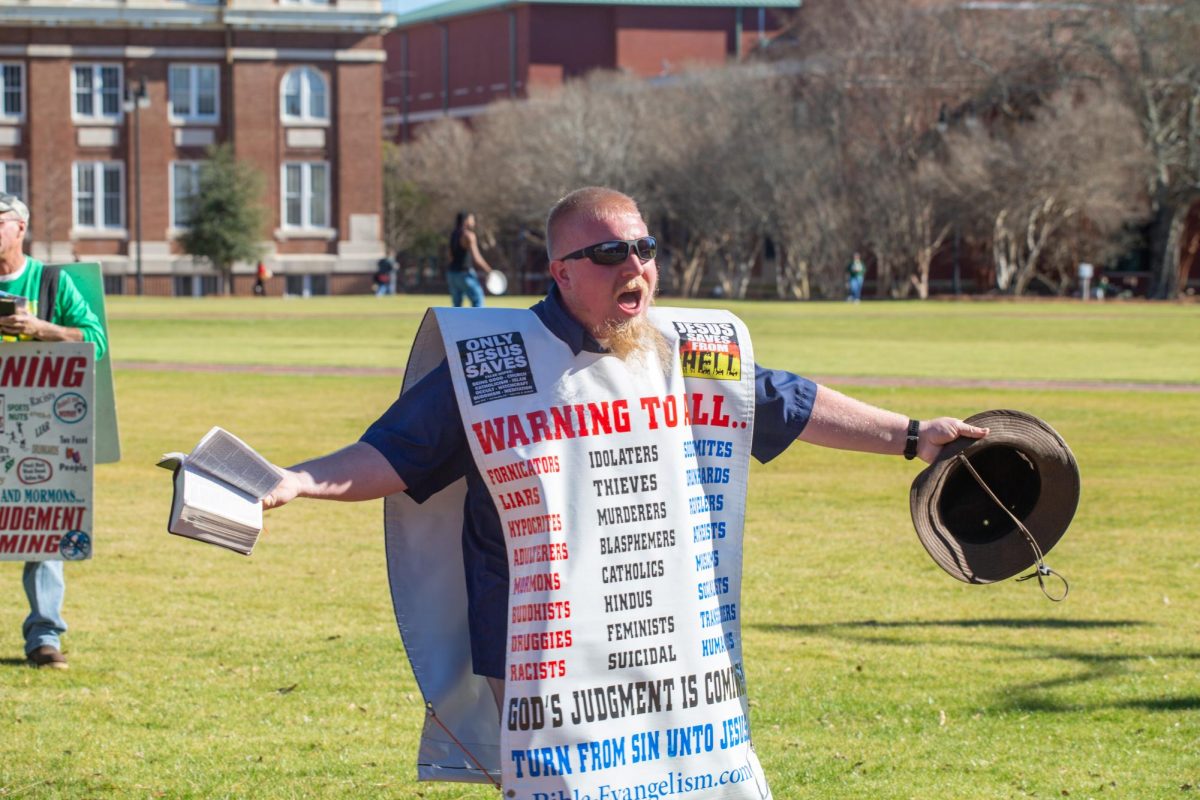Free speech has become a contentious and widely debated issue in the United States. For the past year, we have seen thousands of students pitching tents, staging sit-ins and marching for miles to protest acts of genocide against Palestinians. At Columbia University, for instance, students have demanded that the school divest from defense contractors like Boeing and sever ties with institutions such as Tel Aviv University, as reported by Reuters.
The Foundation for Individual Rights and Expression (FIRE), a prestigious organization dedicated to defending free speech in the US, ranks colleges based on criteria like tolerance for controversial speakers, administrative support for open dialogue, and students’ comfort in expressing their ideas. Mississippi State University holds an impressive No. 10 ranking on FIRE’s list, boasting zero instances of deplatforming students or faculty. On paper, MSU appears to be a bastion of free expression. But below the surface, the reality is far more complicated.
MSU has deep financial ties to war contractors. When looking at our endowments using the MSU Foundation website, we see that the four largest war contractors, Boeing, Raytheon, General Dynamics and Lockheed Martin give massive endowments to our school.
This money goes into programs primarily in the engineering department that help develop technology that is used by the US Military overseas, particularly in the Middle East. While some may argue that these endowments fund valuable research and scholarships, they are ultimately there to continue funding violence abroad. Our MSU engineers would be better served doing work that is to the benefit of everyone, not just a war contractor.
MSU goes to Israel almost yearly to conduct research. The Archeology Department often flies to the Occupied West Bank in search of biblical artifacts. This work is being done on land that was forcefully taken from an indigenous group, and now is being used as a sandpit for academics.
FIRE calls us a haven of free speech, but the absence of meaningful dialogue about the university’s ties to war and occupation suggests otherwise. Why is there such silence on these critical issues?
One reason is fear of backlash. In a conservative state like Mississippi, speaking in support of minority groups can make you a target. When students at the University of Mississippi held a pro-Palestine protest, there were many other students present as a counter-protest, often making vile remarks toward the original protest, such as a monkey impression when a Black female student was speaking.
The Ole Miss students did have security protecting them, which ensured their physical safety. However, that did not prevent people from yelling heinous things. The picture that MSU students imagine when they think of protesting is the counter-protest retaliation at Ole Miss. Having that thought process and not wanting to protest because of it is valid. However, protests are meant to stir up attention and are sometimes going to result in negative feedback.
The responsibility lies in a trichotomy between the university, the police and the protest organizer. The protest organizer has to expect that the university and police may not do should to protect protesters, but that should not prevent the protest altogether. The university and police are expected to follow the law; however, laws can be made against the students. For example, MSU recently changed where you can protest, moving it to a less central part of the drill field. Decisions such as these are vehemently anti-protester and make campus more hostile to retaliation.
This hostile environment discourages some from voicing their opinions openly.
“Mississippi State University is filled with a student body where the Republicans are very proud and outspoken. I myself do not fit into the Republican or Democratic Party neatly, but if I ever have a difference of opinion, it is not often where you can speak out on it,” an anonymous MSU student on the FIRE website noted.
Another factor is widespread political apathy. Crimson Ireland, a sophomore majoring in biological sciences and president of the Bulldog Leftist Union, said that politics are rarely discussed on campus — even in clubs designed for political engagement.
Robert Calabrese, a Ph.D. electrical and computer engineering candidate, echoes this sentiment.
“Most people that I run across on campus are indifferent about politics,” Calabrese said.
Even among political science majors, there is a surprising lack of engagement, with many students dismissing the topic altogether with phrases like, “I don’t do politics.”
This culture of disengagement is deeply rooted in the university’s institutional framework. The Stennis Montgomery Association is a “bipartisan” group on campus that hosts political speakers and organizes voter registration drives. The group is named after Democrat John Stennis, a staunch segregationist who voted against the Civil Rights Act.
In the past four years, the association has hosted only two liberals out of about a dozen. One was Democrat Mayor Lynn Spruill and the other was Shuwaski Young, who is now a Republican. Even in supposedly neutral spaces, conservatism dominates the conversation at MSU.
MSU’s conservative, pro-war agenda is fueled by its financial reliance on defense contractors. Yet, there has been no significant pushback against the university’s interests. Without a history of protest, it is impossible to predict how the administration, campus police or the student body would respond to such actions. This uncertainty only adds to the silence.
But silence is not the answer. I urge students to organize, speak out and demand accountability. Your tuition dollars are just as valuable as the endowments from defense contractors, and you deserve a say in how your university operates. Staying quiet only enables those in power to act without scrutiny or resistance. Without open dialogue and critical engagement, progress is impossible. It is time to break the silence and challenge the status quo at Mississippi State University.









